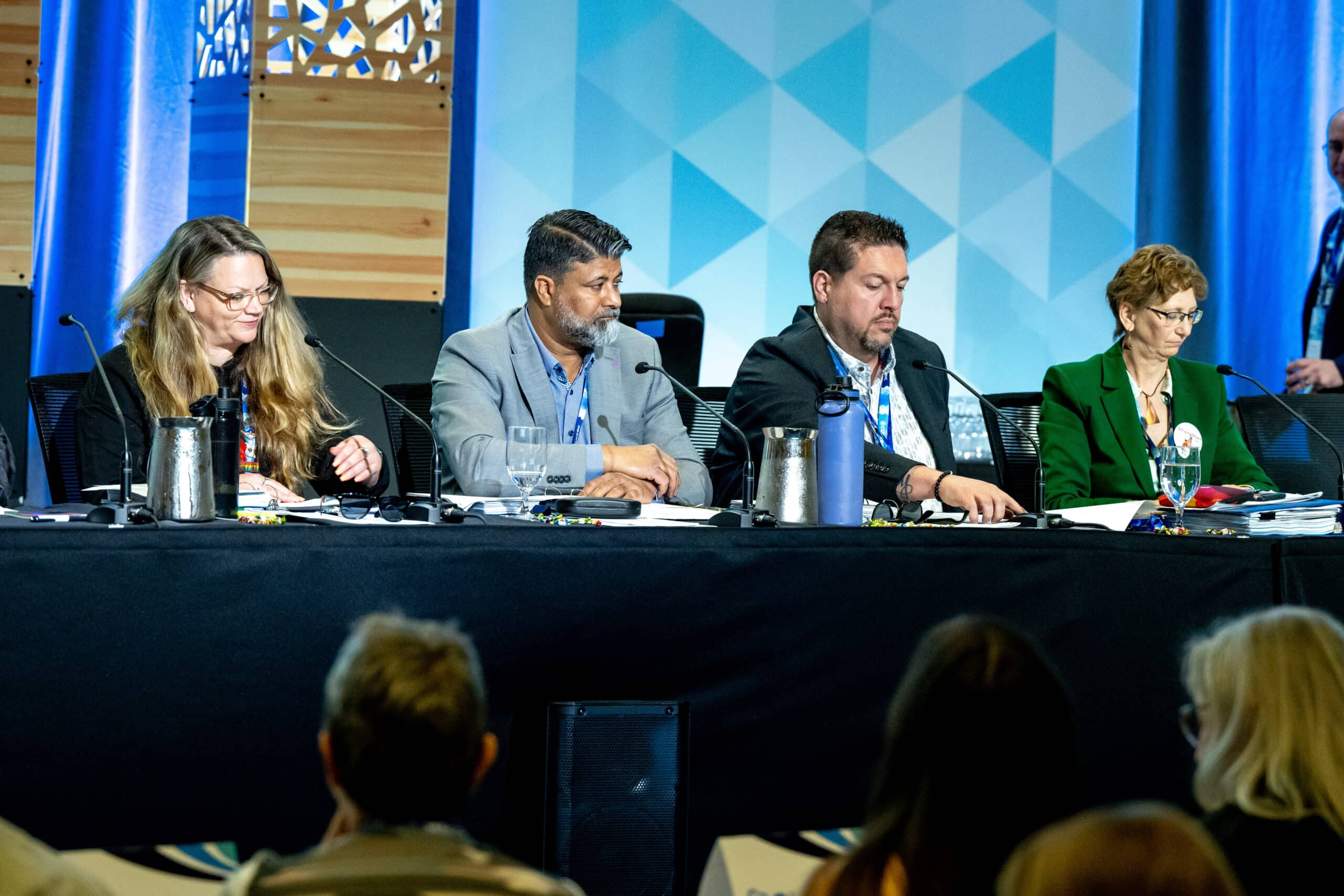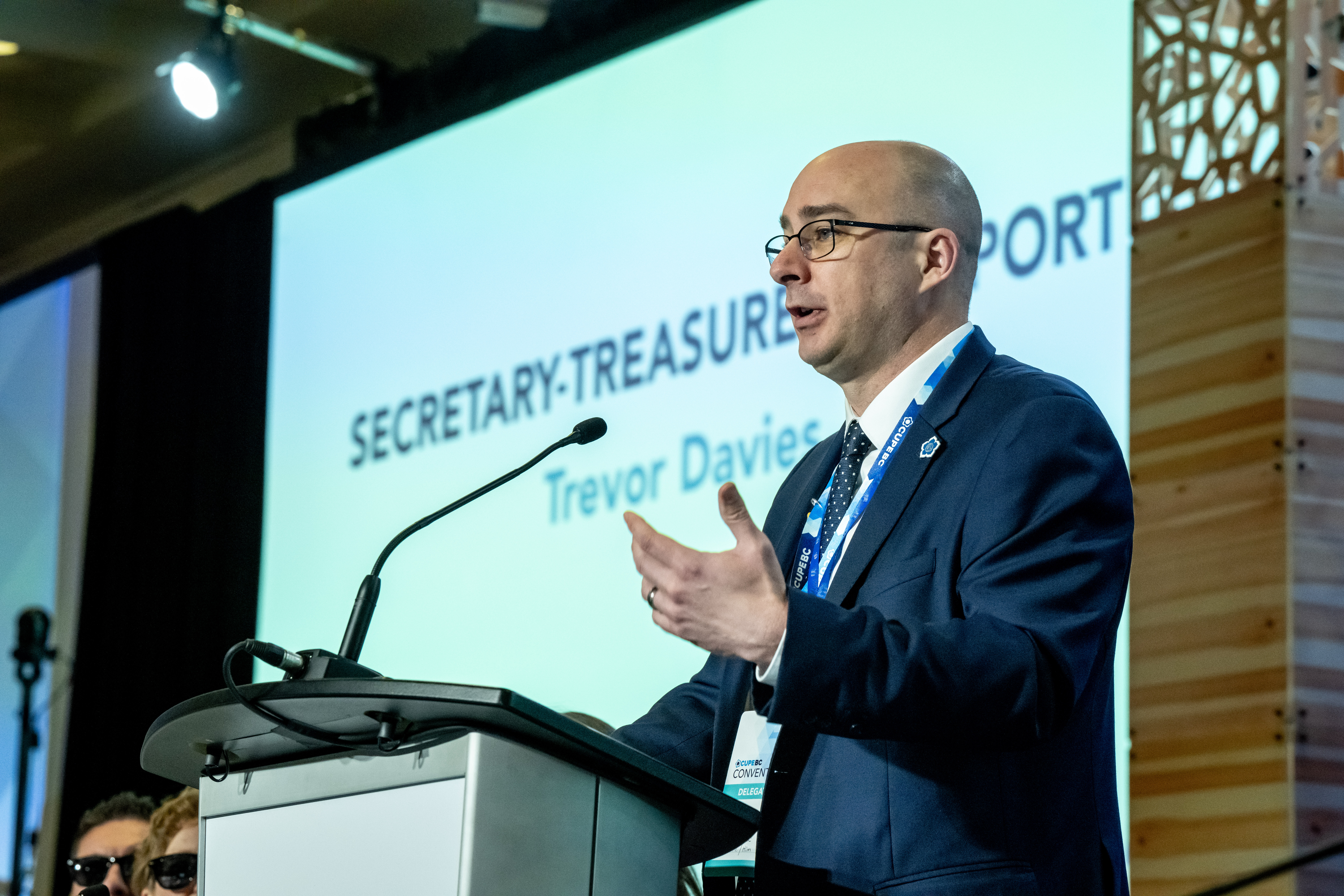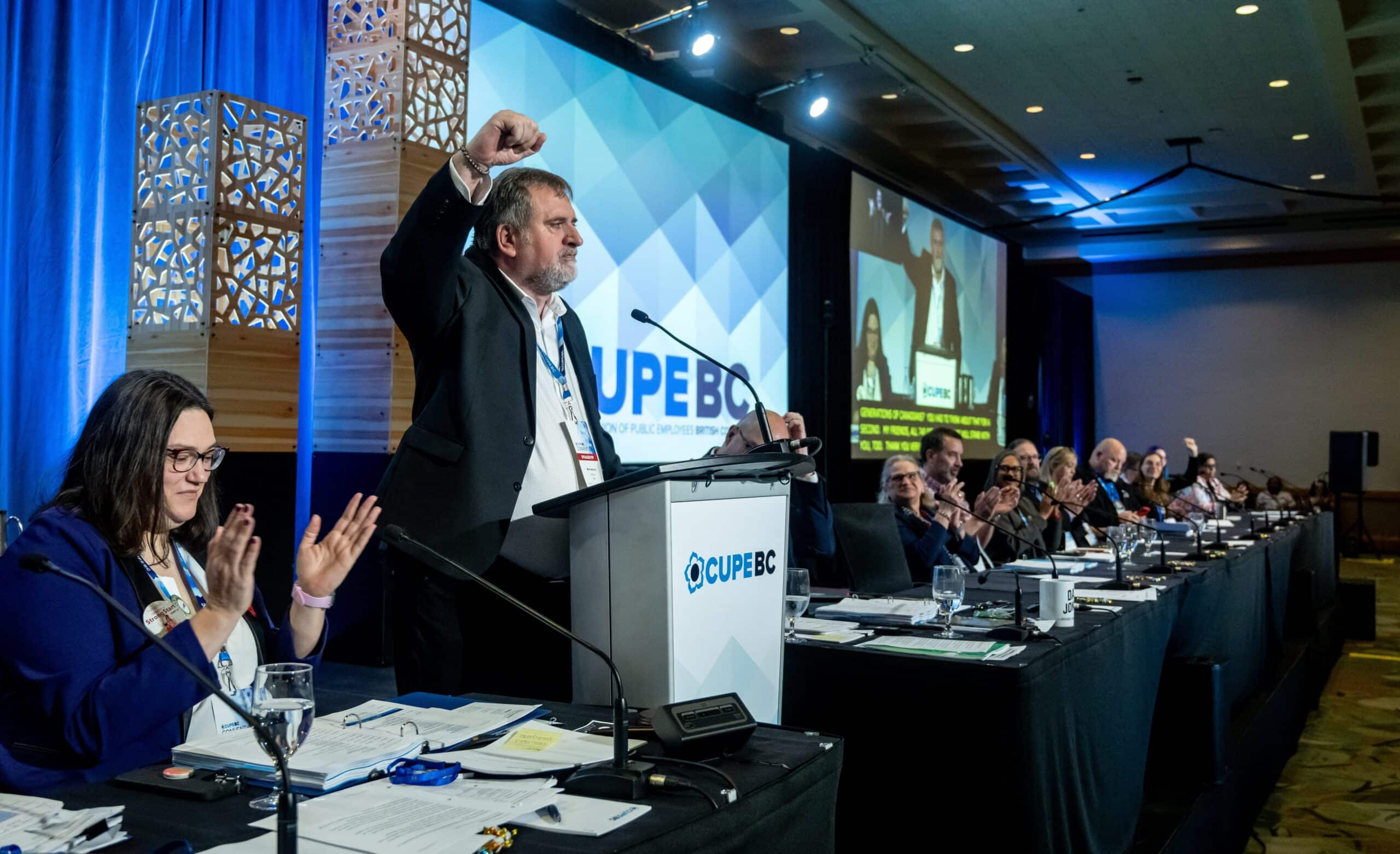Schools will re-open on September 8–11, with days in place for support staff and others in the school to familiarize themselves with procedures before students start back.
New health and safety measures need to be put in place. Districts must submit safety plans to government by August 21. Locals should be meeting with districts now to give input on plans.
The restart steering committee continues to meet throughout the summer.
In solidarity and safety,
Warren Williams
K-12 Presidents Council President
Find all FAQs at bcschools.cupe.ca
COVID-19 FAQ #4
Health and Safety
On July 22, 2020 the WorkSafeBC board of directors passed the changes adding a presumption for communi-cable viral pathogens to the Workers Compensation Act. Bill 23 was made law on August 1
21.What does a “presumption” of workplace causation mean?
Normally, when a worker files a WorkSafe claim due to an occupational disease, the worker is required to prove that the disease was caused by the workplace. This places an onerous burden on the worker to prove causation, which is often highly controversial. However, WorkSafe maintains a list of diseases and industries in which the disease is presumed to be caused by the workplace if the workers work in one of the associated industries. Usually this occurs where scientific evidence establishes that certain occupational diseases occur more commonly in that industry. For example, the list includes a presumption for mesothelioma in industries where there is exposure to airborne asbestos dust. In those cases, the worker does not need to prove that their illness was caused by the workplace in order to access compensation.
22. What exactly is changing?
WorkSafe has added a presumption that covers any “communicable viral pathogen” that is subject to an order of the Provincial Health Officer, or the subject of a state of emergency. The applicable industries include those where the risk of exposure to the disease is significantly greater than that of the public at large during the times and in the places covered by the Provincial Health Officer’s notice, or the state of emergency. The change means that anyone who contracts one of these diseases—and who works in an industry that is at greater risk of exposure to the disease—does not need to prove that they contracted the disease at the workplace.
The change is not restricted to COVID-19 and would also apply to future epidemics that are the subject of orders from the Provincial Health Officer or subject to a state of emergency.
Normally, changes to the list of presumptions requires 90 days before they come into effect. Bill 23 overrides that time frame and allows the change to come into effect immediately.
22. Will members who contract COVID-19 at work have access to Workers Compensation?
In most cases, yes. Workers who contract COVID-19 will be able to claim Workers Compensation as long as they work in an industry that is at greater risk of exposure than the public at large. WorkSafe has not provided any guidance on what types of workplaces will be covered by this description, however, so there remains some uncertainty. In all likelihood, any workplace that includes exposure to the public or larger numbers of people will be covered.
23. Do districts have to follow provincial standards for cleaning or the guidelines from the PHO?
Districts must follow the cleaning guidelines of the BC Centre for Disease Control and the Provincial Health Officer/BC Ministry of Health. This document provides guidance for K-12 schools settings, and it is updated regularly by the government as changes are made. For current and updated information on cleaning and disinfecting for public settings check out this document.
WorkSafeBC has added K-12 Guidelines to their website. Find these additional resources here.
24. What are the protocols for the public and others coming into schools?
Parents and others who are permitted to come into schools will be required to follow the safety protocols outlined in the district’s safety plan. These protocols must follow PHO guidelines for safety at all times. CUPE and the K-12 Presidents Council have been advocating that all members of the public, including parents and volunteers, check in with the school office or call prior to arriving at the school, and that schools limit the number of outside visitors whenever possible.
Please bring your safety concerns to your site health and safety committee.





